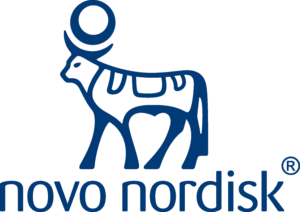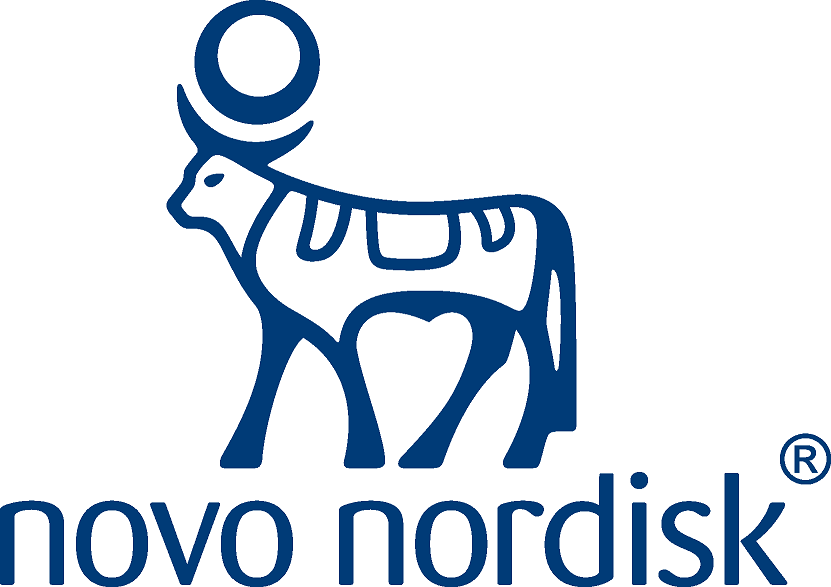2nd Patient Empowerment World Congress 2026 Europe
“The importance of Patient Empowerment in pharma and healthcare in achieving improved health outcomes, building greater trust, and driving innovation within the industry"
Hilton London Kensington, London, United Kingdom
Thursday 5th - Friday 6th November 2026
Facilitate Live is very pleased to welcome you to our upcoming Patient Empowerment World Congress 2026 Europe.
The two-day Congress aims to build meaningful collaborations within the industry, advocacy groups, clinicians, researchers, and most importantly, patients and their caregivers. Gain practical strategies and best practices on challenges, innovations, technologies, and concepts in achieving this goal.
The congress focuses on “The importance of Patient Empowerment in pharma and healthcare in achieving improved health outcomes, building greater trust, and driving innovation within the industry”
Involving patients in their treatment decisions and ensuring their understanding of care plans greatly enhances adherence to prescribed medications and therapies. This approach, integrating shared decision-making with comprehensive patient education, enables individuals to make informed choices, leading to improved health outcomes. The advantages of patient empowerment are extensive, including quicker recovery times, reduced anxiety, and an increased likelihood of patients proactively managing their health through healthier lifestyle choices and effective condition monitoring.
When patients feel heard and respected, it strengthens their bond with healthcare providers, fostering more open communication and better collaboration. Engaging with patients and demonstrating a commitment to their needs builds trust and cultivates positive perceptions of the pharmaceutical industry. Patient empowerment necessitates transparency in research, development, and treatment information, achievable through clear communication and accessible resources. Patient input is invaluable for driving innovation and efficiency in healthcare, as it helps identify unmet needs, design more effective clinical trials, and develop new therapies that are truly relevant to patients’ lives. When patients are actively involved in the research process, they are more likely to participate in clinical trials and remain engaged throughout the study.
By understanding patient preferences and experiences, pharmaceutical companies can develop more personalized and effective treatments and support programs. Furthermore, empowered patients can provide valuable feedback on patient support programs, aiding in their refinement and improvement. Patient empowerment aligns with ethical principles that respect individual autonomy, enabling patients to make informed decisions about their health. By ensuring all patients have access to the necessary information and support, patient empowerment can help address health disparities and promote health equity. Ultimately, patient empowerment is a key driver in moving towards a healthcare system where patients are active participants and their needs are at the center of care.
The two-day Congress aims to foster significant conversations and collaborations among various key stakeholders, including those in the healthcare and pharma industries, advocacy groups, clinicians, researchers, and, most importantly, patients and their caregivers.
We will focus on patient empowerment and its implications for both patients and the pharmaceutical and life science industries. I hope this event will spark insightful discussions.
We look forward to meeting you at the Congress!
Sincerely yours,
Jocelyn Raguindin
Conference Director
Paradigm Global Events / Facilitate Live
GAIN LATEST INSIGHTS ON:
- Collaborative decision-making measures to ensure patients, pharma and healthcare providers work together to make informed treatment decisions, recognizing patients as equal partners.
- Providing clear and accessible information to patients about their conditions, treatments, and available options to empower their active participation.
- Patient involvement in treatment decisions and understanding of care plans improves adherence to medication and therapies.
- Fostering more open communication and better collaboration with healthcare providers ensuring they feel heard and understood.
- Patient input is crucial for healthcare innovation to help identify unmet needs, design better clinical trials, and develop more relevant therapies.
- Actively engaging patients in the research process to increase participation, better trial outcomes, and a more patient-centred research environment.
- Pharmaceutical companies can develop more personalized and effective treatments and support programs by understanding patient preferences and experiences,
- Shifting approach from a paternalistic model to a collaborative approach that places patients at the center of their healthcare journey.
- Strategies to encourage healthcare professionals to develop the skills and attitudes necessary for adapting to the evolving role of patients.
- Addressing health disparities and promote health equity by ensuring all patients have access to the necessary information and support
- Role of researchers in bridging the communication gap between life science industry and the patient it serves
- How to achieve a deeper understanding of the patient experience in the real world

WHO SHOULD ATTEND?
This Congress is beneficial to pharmaceutical, biotech companies, researchers, physicians, patient advocacy groups, regulatory agencies, technology and healthcare companies.
Network with Presidents, Heads/Chiefs, VPs, Directors, and Leaders in the area of:
- Patients
- Patient Engagement
- Patient Services
- Engagement Strategy
- R&D Patient Engagement
- Medical Affairs
- Commercialisation
- Marketing
- Regulatory Affairs and Policy
- Patient Support
- RWE, and Data Management
- Quality and Compliance
- Clinical Development and Operations
- Programme Management
- Supply Chain Management
- Patient Access
- Clinical Research
- Digital Accelerator
- Patient Engagement & Portfolio Strategy
- Patient Support
- Strategy & Insights
- Patient Experience
- Global Patient Advocacy & Alliances
- Government Policy and Advocacy
- Digital Patient Experience Lead
- Clinical Insights and Experience
- Head of Strategy, Access Services
- Site Collaborations and Patient Centricity

- Day 1 05/11/2026
- Day 2 06/10/2026
 Anthony Cunliffe, National Lead Medical Adviser, Macmillan Cancer Support
Anthony Cunliffe, National Lead Medical Adviser, Macmillan Cancer Support
KEY ASPECTS OF PATIENT EMPOWERMENT
- Challenges in achieving healthcare equity and how these barriers relate to the rise of consumer-driven healthcare models
- Identifying the necessary actions for hospitals and policymakers to ensure individuals can afford essential diagnostic tests and treatments without delaying care.
- How stakeholders in the healthcare system can cultivate an environment that empowers patients to better understand the cost and quality of the treatments they receive?
- How healthcare organizations are adapting to the increasing involvement of patients in their own healthcare and how this shift has influenced their strategies and product development.
Moderator:
 Victoria Hayes, Director Public Affairs, Kyowa Kirin
Victoria Hayes, Director Public Affairs, Kyowa Kirin
Panelists:
 Geoff Rollason, Formerly Patient Experience and Service Lead at Pfizer UK
Geoff Rollason, Formerly Patient Experience and Service Lead at Pfizer UK
 Daniel Newman, Patient Advocate, Diabetes UK’s Science and Research Advisory Group
Daniel Newman, Patient Advocate, Diabetes UK’s Science and Research Advisory Group
 Emily Reuben OBE, CEO & Co-founder, Duchenne UK
Emily Reuben OBE, CEO & Co-founder, Duchenne UK
 Ankita Batla, Senior Vice President, Medical Strategy, Klick Health
Ankita Batla, Senior Vice President, Medical Strategy, Klick Health
- Standard definition
- Patient perspective
- Other suggestions and open discussions
 Carole Scrafton, Director & Co-Founder, Flutters and Strutters
Carole Scrafton, Director & Co-Founder, Flutters and Strutters
- Areas of focus for patient advocacy partnerships
- Best practice in working together to produce better outcomes for patients
- Benefits of working together
- Embracing a patient-centric mindset and keep the patient front of mind
- How to interact in every way with the groups that represent those patients
 Wafae Iraqi, Patient Engagement Lead, EMEA, Johnson & Johnson
Wafae Iraqi, Patient Engagement Lead, EMEA, Johnson & Johnson
- The importance of patient perspectives in regulatory processes
- The benefits of prioritising patients’ needs and preferences in drug- and device-related decisions
- The value of understanding public and patient acceptability of risk and benefits
- Influencing medical product developers to involve patients in their development pathway
 Lawrence Tallon, Chief Executive Officer, M H R A
Lawrence Tallon, Chief Executive Officer, M H R A
- Enhancing provider schedules and empowering patients to book their appointments, thereby boosting accessibility and satisfaction.
- Applying technological solutions to improve the coordination of care.
- Optimizing processes to decrease inefficiencies, delays, and revenue shortfalls.
- Encouraging patient involvement through portals, applications, and educational materials.
RESERVED
- Introduction and historical context
- AI’s current applications in healthcare
- Legal and ethical considerations
- Challenges to AI integration
- Future trends in AI implementation within healthcare.
RESERVED
- How one parent led charity changed the paradigm for research, access and care in Duchenne Muscular Dystrophy
- Hercules – an award winning collaboration putting patient expertise at the heart of developing tools for HTA Duchenne UK created a global partnership with pharma and academics to give companies the best chance possible of successful HTA submissions
- DMD Hub – how the patient desire for clinical trials drove a £4million investment in clinical trial infrastructure in the UK
- DMD Care – how Duchenne UK created a national collaboration between patients and clinicians to improve SoC across the board.
 Emily Reuben OBE, CEO & Co-founder, Duchenne UK
Emily Reuben OBE, CEO & Co-founder, Duchenne UK
KEY ASPECTS OF PATIENT EMPOWERMENT
- Patient empowerment – a partner dance on a crowded dancefloor
- Mapping the steps – what does the evidence say?
- Stepping on toes – where the dance falters
- Choreographing next steps
 Dr Liz Clark, Visiting Lecturer & Patient Engagement Theme Lead, King’s College London
Dr Liz Clark, Visiting Lecturer & Patient Engagement Theme Lead, King’s College London
- Elevate remission as a meaningful and achievable treatment goal
- Highlight civil society perspectives on the burden of inflammatory conditions and the need for remission- focused care
- Identify key policy and health system barriers to pursuing remission
- Develop patient advocacy strategies to address these barriers
 Neil Betteridge, Patient Advocate, Sr Director, Europe,
Neil Betteridge, Patient Advocate, Sr Director, Europe,
GAfPA
- My experience in healthcare delivery
- The view from pharma
- How does it feel for patients?
 Geoff Rolasson, Formerly Patient Experience and Service Lead at Pfizer UK
Geoff Rolasson, Formerly Patient Experience and Service Lead at Pfizer UK
3:40 pm - AFTERNOON NETWORKING REFRESHMENTS
- Living with Osteogenesis Imperfecta and navigating life across two healthcare systems – Germany & the UK
- My experiences as a disabled student in mainstream education, and the importance of inclusive support
- The emotional and mental health impact of living with a rare condition, and confronting stigma head-on
- Speaking at the House of Lords, the Department for Work and Pensions, and the World Health Assembly
- Why patient voices—especially from disabled and rare disease communities must shape policies and systems
 Niveda Kiridaran, Youth Advocate, Rare Diseases Int’l
Niveda Kiridaran, Youth Advocate, Rare Diseases Int’l
Youth Leadership Programme
- Facilitating partnership working between patients and healthcare professionals
- Evolving our approach to meet the changing needs in the NHS
- Breaking down barriers to engagement – successes and learnings
- The challenge of reach vs need
- Maximising the impact for patients through supporting hospital staff
 Catherine Wood, Head, Healthcare Prof. Support &
Catherine Wood, Head, Healthcare Prof. Support &
Engagement, Breast Cancer Now
CLINICAL RESEARCH & TECHNOLOGY
 Anthony Cunliffe, National Lead Medical Adviser,
Anthony Cunliffe, National Lead Medical Adviser,
Macmillan Cancer Support
- What does patient centricity actually mean?
- How is it applied in the clinical and research worlds?
- What’s the difference between engaging with feedback from people in the research world compared to the clinical world?
- Are we doing enough?
 Amelia Hursey, Strategic Director, parkinsonseurope.org
Amelia Hursey, Strategic Director, parkinsonseurope.org
- How can technology truly empower authentic patient partnerships in clinical research?
- We will explore how to strategically deploy ever advancing technology where it directly addresses a specific patient or research challenge.
- We will also address the need to shift the ‘us versus
them’ mindset
 Keith Berelowitz, Founder/CEO, pRxEngage Inc
Keith Berelowitz, Founder/CEO, pRxEngage Inc Thomas Smith, Patient expert living with Cystic
Thomas Smith, Patient expert living with Cystic
Fibrosis, pRxEngage Inc
- Language accommodation in the conduction of cross- border clinical trials
- Children’s rights in the access to science
- Analysis of the state of the art: Europe as attractive ecosystem for cross-border access to clinical research
- Patient involvement in the design of cross-borders studies.
 Begoña Nafría Escalera, Coordinator of eYPAGnet, Hospital
Begoña Nafría Escalera, Coordinator of eYPAGnet, Hospital
Sant Joan de Déu
3:40 pm - AFTERNOON NETWORKING REFRESHMENTS
- Best practices for training and supporting lived experience educators in healthcare.
- Empowering patients and families as co-educators and leaders—not just participants.
- Embedding authentic patient partnership into clinical education and peer support.
- Supporting patients through the emotional impact of storytelling and advocacy.
- Creating space for patient-led innovation to improve care and connection.
 Monica Hulsey, Family as Faculty, Patient & Caregiver
Monica Hulsey, Family as Faculty, Patient & Caregiver
Educator, Holland Bloorview Kids Rehabilitation
Hospital
- The value and power of foresight at the earliest possible stage of product development
- Identifying and maintaining relevance to the target patient population
- Supporting mechanisms for optimal efficacy and adherence
 Lorna Allen, Senior Involvement Manager, Cystic Fibrosis
Lorna Allen, Senior Involvement Manager, Cystic Fibrosis
Trust
- Breaking down silos for comprehensive strategy to anticipate challenges and opportunities in both short and long term
- Addressing urgent policy changes and stakeholder concerns while planning for the future
- Integrating patient-centricity into the broader patient access strategy
- Harmonisation imperative for sustained growth
Moderator:
Panellist:
 Glenn Darley, Patients Engagement Lead EMEA, Recordati Rare Diseases
Glenn Darley, Patients Engagement Lead EMEA, Recordati Rare Diseases
 Beverly Lui, former Head, Patient Advocacy and Engagement International Region, Apellis
Beverly Lui, former Head, Patient Advocacy and Engagement International Region, Apellis
 Lopa Ghosh, Sr Advisor, Policy & Communications, Global Health Advocacy Incubator
Lopa Ghosh, Sr Advisor, Policy & Communications, Global Health Advocacy Incubator
6:15 - 7:15 pm - NETWORKING DRINK RECEPTION
 Emma Sutcliffe, Founder, ISPEP
Emma Sutcliffe, Founder, ISPEP
CHALLENGES & OPPORTUNITIES IN EMPOWERING PATIENTS
- How can DEI empower individuals
- Promoting cultural competency, understanding the social determinants of health that affect specific
communities and considering patients’ unique needs - How DEI improves patient outcomes thru better communication, build trust and address systemic biases?
- Evidence-based interventions to tackle disparities in health status and access to care
- Benefits of integrating patient engagement with diversity, equity, and inclusion in new medical product development
Moderator:
Panellists:
 Steve Clark, Founder and Patient Advocate, Strive for Five
Steve Clark, Founder and Patient Advocate, Strive for Five
 Lara Bloom, President and CEO, The Ehlers-Danlos Society
Lara Bloom, President and CEO, The Ehlers-Danlos Society
 Sarah Cross Ph, Vice President, Global Head of Medical Affairs, Premier Research
Sarah Cross Ph, Vice President, Global Head of Medical Affairs, Premier Research
- Explore the transformative power of empathy and communication in clinical settings.
- Emphasize the need to shift from transactional medical dialogue to person-centred conversations.
- Challenge systemic norms that dehumanize the patient experience.
 Lara Bloom, President and CEO, The Ehlers-Danlos Society
Lara Bloom, President and CEO, The Ehlers-Danlos Society
This resolution is not just symbolic. It provides a concrete, evidence-backed roadmap for engaging patients, people with lived experience, healthcare providers, and civil society in a structured, measurable, accountable and resourced way in health system design, delivery and decision-making. It is an opportunity to reshift focus on the health outcomes that matter –too often health is done to people, not with people. And it’s an opportunity for the patient community to claim its space once and for all.
 Amanda Bok, Chief Partnership Officer, The Synergist
Amanda Bok, Chief Partnership Officer, The Synergist
- How clinical communication facilitates empowerment?
- Benefits of effective communication
- Barriers to effective communication
- Examples of empowering communication strategies
 Steve Clark, Founder and Patient Advocate, Strive for Five
Steve Clark, Founder and Patient Advocate, Strive for Five
- This topic will cover the work that we have done as a charity to raise the profile of experiences of women being diagnosed with gynae cancer and
- How using patient voices influence change within the NHS
 Lowri Griffiths, Director of Support, Policy & Insight, Tenovus Cancer Care
Lowri Griffiths, Director of Support, Policy & Insight, Tenovus Cancer Care
(This session has been fully funded and developed by Novo Nordisk)
- The importance of a patient engagement strategy
- Why embedding patient engagement principles across a whole organisation is essential
- How will the pharmaceutical industry know if it is truly patient centric
 Catherine Brant, Advocacy and Engagement Lead, Novo Nordisk UK
Catherine Brant, Advocacy and Engagement Lead, Novo Nordisk UK

- Introduction and historical context
- AI’s current applications in healthcare
- Legal and ethical considerations
- Challenges to AI integration
- Future trends in AI implementation within healthcare.
RESERVED
COLLABORATION & SHARED DECISION-MAKING
 Jennifer Costello, Executive Director, Global Patient Outreach (GPO), Bristol Myers Squibb
Jennifer Costello, Executive Director, Global Patient Outreach (GPO), Bristol Myers Squibb
- The purpose of this presentation is to showcase the significant impacts of patient involvement in various Real-World Evidence (RWE) studies conducted at Servier. By engaging different patient advisory boards, we have enhanced our protocol designs, gained a deeper understanding of the burden of disease for patients with severe conditions, and identified barriers to better adherence, ultimately improving the continuum of care. research within the pharmaceutical industry setting
 Delphine Nicolas, Director, Patient Engagement & Advocacy, Servier Pharmaceuticals
Delphine Nicolas, Director, Patient Engagement & Advocacy, Servier Pharmaceuticals
- Why behavior in the real-world matters
- Barriers to diverse participation are multifactorial
- How to support enrollment in clinical trials for patients benefit
 Sylvie Coumel, Global Behavioral Science Lead, Sanofi
Sylvie Coumel, Global Behavioral Science Lead, Sanofi
This session explores collaboration with leading national patient advocacy organizations on health equity work in collaboration with community based organizations.
- Understand work with the ADA in Birmingham, highlighting collaborative efforts to address patient access issues from screening to specialty care.
- Explore the initiatives undertaken with NMSS to tackle neurology desert areas, ensuring access to quality care and support for individuals affected by Multiple Sclerosis.
- Learn about the collaborative work with ACS to advance cancer health equity, aiming to reduce disparities in cancer prevention, treatment, policy and support services.
 Sonali Chopra, Executive Director, Patient Advocacy Relations, GENENTECH
Sonali Chopra, Executive Director, Patient Advocacy Relations, GENENTECH
To follow shortly
 Lindsay Randall, Founder, CEO, Mother, Arthur’s Quest / SLC6A1 Connect UK
Lindsay Randall, Founder, CEO, Mother, Arthur’s Quest / SLC6A1 Connect UK
- Fundamental aspects of patient advocacy, including its definition and core concepts
- How advocacy serves as a vital link between patients and healthcare providers
- Practical strategies for effective patient advocacy
- Real-world case studies and exploring emerging trends shaping the future of patient advocacy
Moderator:
 Emma Sutcliffe, Founder, ISPEP
Emma Sutcliffe, Founder, ISPEP
Panelists:
 Delphine Nicolas, Director, Patient Engagement & Advocacy, Servier Pharmaceuticals
Delphine Nicolas, Director, Patient Engagement & Advocacy, Servier Pharmaceuticals
 Beverly Lui, Head, Patient Advocacy and Engagement International Region, Apellis
Beverly Lui, Head, Patient Advocacy and Engagement International Region, Apellis
 Lopa Ghosh, Senior Advisor, Policy & Communications, Global Health Advocacy Incubator
Lopa Ghosh, Senior Advisor, Policy & Communications, Global Health Advocacy Incubator
 Geoff Rollason, Patient Advocate, former Patient Experience and Service Lead, Pfizer UK
Geoff Rollason, Patient Advocate, former Patient Experience and Service Lead, Pfizer UK Jennifer Costello, Executive Director, Global Patient Outreach (GPO), Bristol Myers Squibb
Jennifer Costello, Executive Director, Global Patient Outreach (GPO), Bristol Myers Squibb
 Emma Sutcliffe, Founder, ISPEP
Emma Sutcliffe, Founder, ISPEP
 Jennifer Costello, Executive Director, Global Patient Outreach (GPO), Bristol Myers Squib
Jennifer Costello, Executive Director, Global Patient Outreach (GPO), Bristol Myers Squib




